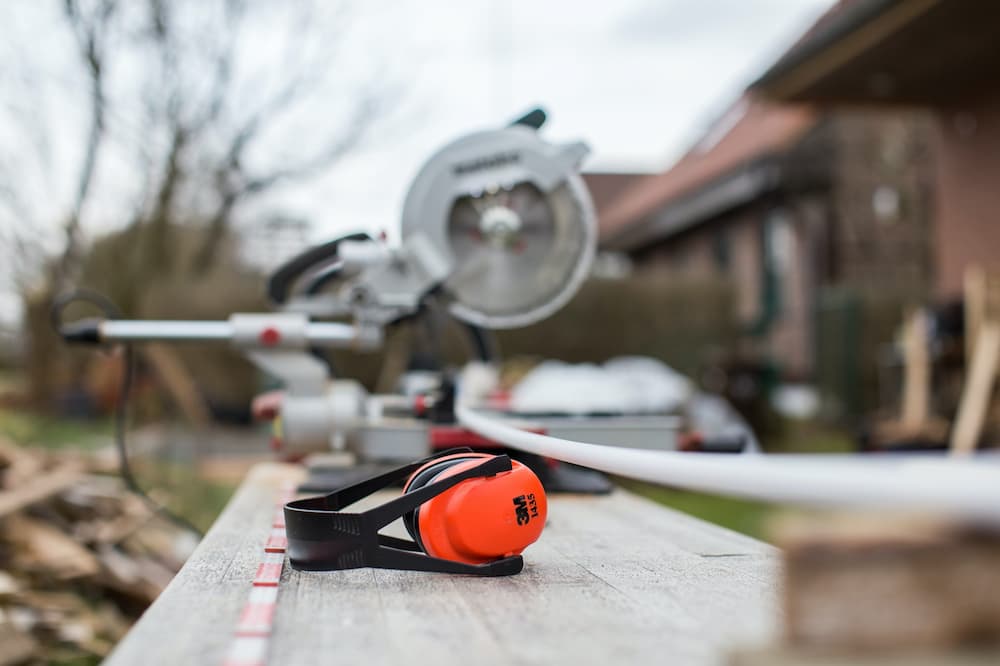It’s no secret that construction sites can be noisy - and there’s a reason that there are legal noise limits on and around construction sites, and why construction workers will often be wearing earbuds or headphones.
But why exactly is noise awareness so important in the construction industry? And why is there so much focus on hearing protection on building sites?
There are many sources of loud noises on construction sites, which is why noise awareness is so important. Keep reading to find out more about noise awareness on construction sites, including why noise awareness is so important and how to protect against loud noises.
Why Is Noise Awareness So Important in Construction?
There are countless sources of noise in the construction industry, from machinery, drops from heights, powered hand tools, and many more.
It’s important that all correct procedures are followed in terms of noise and protection from hazardous noise levels.
Being exposed to hazardous noise levels can ultimately cause deafness, as well as permanent hearing damage, and tinnitus (unpleasant ringing in the ears).
Over two million people in Great Britain alone have been exposed to hazardous noise levels in the workplace. It’s one of the most common injuries in the workplace - In fact, it’s the second most common reason for occupational health insurance claims. Even exposure for a small amount of time can cause irreparable damage.
To prevent long-term hearing damage, it’s important to attend regular hearing checks. This should identify any issues before they become severe.
Too much noise can not only damage your hearing but can affect communication on construction sites and cause mistakes to occur. It’s important to be able to hear shouting on construction sites. Construction site noise should never leave you unable to hear warning signals, shouts for help and fire alarms.
It’s the role of construction site managers as well as construction workers to ensure that the correct safety measures are in place on construction sites.
How To Protect Against Noise on Construction Sites
One of the main ways of protecting workers, management, and visitors from noise-related risks on construction sites is by providing the correct PPE.
PPE for sound on building sites may include earplugs, ear defenders, and sound-level meters. PPE should always be used if the noise levels exceed 85 decibels, which is a regular occurrence in the construction industry.
PPE, however, can be useless if they’re not worn correctly. PPE should be looked after correctly, and worn in the correct way. If unsure, it’s always best to speak to the site manager for advice and guidance.
There are also apps that can alert you when the sound levels exceed 85 decibels, which is super convenient and can help to prevent noise-related injuries.
Another way of protecting against noise on construction sites is ensuring all machinery and equipment is serviced regularly. As machinery or equipment starts to break down, it may make more noise than usual.
Equipment that’s run using fossil fuels can be excessively loud - but there are quieter alternatives. Hydraulic equipment and electric equipment is likely to be much quieter and can make lots of difference when lowering noise levels on construction sites.
Sometimes noise is unavoidable - but fitting noise guards or barriers (e.g foam padding) can help to reduce the spread of noise, and contain it in a certain area.
However, one of the most effective ways of protecting yourself or your employees from noise on construction sites is by educating yourself on noise awareness.
Giving employees the correct training will help to prevent risks associated with excessive noise. Education is the ultimate protection against noise damage and can help employees understand and mitigate any noise-related risk.
At Beaconrisk, we offer an effective Noise Awareness Course that can give you all the information you need to protect yourself from noise. As well as showing you how dangerous excessive noise can be in the workplace, the course highlights the main safety issues that you should be aware of.
Through this course, we’ll introduce you to the main laws that apply concerning noise on construction sites, as well as the legal noise level limits. This course also ties in with risk assessments and action plans, all of which should include noise where relevant.
If you are looking to improve health and safety on a construction site, it is also important you look at getting accreditations such as CHAS and Constructionline.

